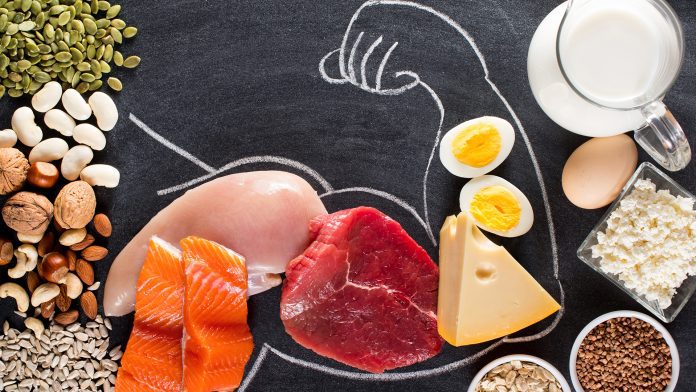
A Chinese study has found that eating a balanced diet comprised of various sources of protein is potentially effective at reducing the risk of developing high blood pressure.
In the US alone, nearly 50% of the population has hypertension, or high blood pressure, one of the primary drivers of cardiovascular disease. High blood pressure can significantly damage the circulatory system if not treated, and is a major contributing factor to stroke, heart attack, and a range of health conditions. Now, scientists have suggested that a diet built up of multiple sources of protein may help mitigate high blood pressure.
Xianhui Qin, MD, the author of the study from the National Clinical Research Center for Kidney Disease at Nanfang Hospital, Southern Medical University in Guangzhou, China, commented: “Nutrition may be an easily accessible and effective measure to fight against hypertension. Along with fat and carbohydrates, protein is one of the three basic macronutrients.”
The study was funded by the National Natural Science Foundation of China, Outstanding Youths Development Scheme of Nanfang Hospital, Clinical Research Program of Nanfang Hospital and Southern Medical University and is published in the journal of the American Heart Association.
Consuming different sources of protein
Previous research has identified a strong association between a poor-quality diet and a heightened risk of cardiovascular disease and death. The American Heart Association’s 2021 dietary guidance promotes that people should consume healthy sources of protein, mainly from plants, seafood and low-fat or fat-free dairy products, and lean cuts of unprocessed meat and poultry. Moreover, they advise eating one to two servings, or 5.5 ounces of protein daily.
For their investigation, the team analysed the health information of nearly 12,000 adults who lived in China who were involved in at least two out of seven rounds of the China Health and Nutrition Survey from 1997 to 2015, with the surveys taken every two to four years. The team used the participant’s first survey as a baseline, whereas data from their last round was employed as a follow-up comparison.
The survey measured dietary intake for three consecutive 24-hour dietary recalls and a household food inventory. Subsequently, an expert interviewer collected 24-hour dietary information over three days in the same week throughout each survey round. The individuals were given a protein variety score based on the number of sources of protein they consumed out of the eight in the study: whole grains, refined grains, processed red meat, unprocessed red meat, poultry, fish, egg, and legumes. A point was awarded for each source of protein, with a maximum variety score of eight. The researchers then assessed the association between new-onset hypertension and the protein variety score.
Effects on hypertension
The study characterised new-onset hypertension as systolic (top number) blood pressure greater or equal to 140 mm Hg and/or diastolic (bottom number) blood pressure greater than or equal to 90 mm Hg, using blood pressure medication, or a diagnosis of high blood pressure since their last survey visit. The average follow-up time was six years.
The research found that:
- More than 35% of the nearly 12,200 participants developed new-onset high hypertension during follow-up.
- Compared to participants with the lowest variety score for protein intake (less than two), those with the highest variety score (four or higher) had a 66% lower risk of developing high blood pressure.
- For each of the eight protein types, there was a window of consumption amount where the risk of hypertension was lower. Researchers described this as the appropriate level of consumption.
- When the total quantity of protein intake was considered, the amount consumed was divided into five categories (quintiles), from least to most intake. People who ate the least amount of total protein and those who ate the most protein had the highest risk for new onset of hypertension.
Qin said: “The heart health message is that consuming a balanced diet with proteins from various different sources, rather than focusing on a single source of dietary protein, may help to prevent the development of high blood pressure.”
The observational design of the study is a limitation, and due to the team using prior health information, they could not entirely prove that protein intake of any type or amount caused or prevented new-onset hypertension.
























